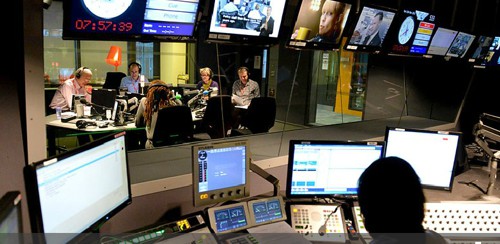Saatchi Bill
|
Maurice Nathan Saatchi, Baron Saatchi is an advertising man who, with his brother, Charles Saatchi ("‘why tell the truth when a good lie will do?), became very rich by advertising cigarettes and the Conservative party. After his second wife died of cancer he introduced a private members bill in the House of Lords in 2012. The Medical Innovation Bill came back to the Lords for its second reading on 24 October 2014. |
 |
The debate was deeply depressing: very pompous and mostly totally uninformed. You would never have guessed that the vast majority of those who understand the problem are against the bill. The Bill has failed to win the support of The British Medical Association, The Motor Neurone Disease Association, the Royal College of Physicians, the Royal College of Surgeons, the Medical Research Society, the Royal College of Radiologists, The Medical Defence Union, the Academy of Medical Sciences, the Royal College of Pathologists, the Royal College of General Practitioners, the Academy for Healthcare Science, the Wellcome Trust, Action Against Medical Accidents, and patient advocacy charities Health Watch and the Nightingale Collaboration, and others. Conservative MP Sarah Wollaston, a former GP, has “very serious concerns” about it.
Grief is not a good basis for legislation. In the Daily Telegraph, Lord Saatchi attributes the lack of a "cure for cancer" to fear of litigation.
“Any deviation by a doctor is likely to result in a verdict of guilt for medical negligence. The law defines medical negligence as deviation from that standard procedure. But as innovation is deviation, non-deviation is non-innovation. This is why there is no cure for cancer.”
This statement is utterly bizarre. Evidently Lord Saatchi knows much more about how to sell cigarettes than he does about how to discover new drugs. The reason there is no cure is that it’s a very difficult problem. It has nothing to do with litigation
Almost every medical organisation, and many lawyers, have pointed out the flaws in his ideas,. But slick, and often mendacious, advertising of his cure has deceived many of our scientifically-illiterate parliamentarians, and the bill is making progress
Lord Saatchi’s Bill would allow uncontrolled testing of treatments on any patient. It is not limited to cancer, nor to terminally ill patients (though some amendments, yet to be accepted, might change that). This sort of uncontrolled experimentation is likely to impede advances in treatment rather than to help them. And the vagueness of the wording of the bill could lead to an increase in litigation, rather than the intended decrease.
It is no coincidence that the legion of cancer quacks is in favour of the bill. It opens the door to their nonsense. Big pharma is likely to benefit too, because they will be able to sell improperly tested drugs with little or no effectiveness and immunity from prosecution if they do harm.
For more information about the Bill, see the excellent site, Stop the Saatchi Bill. There are sections on Dispelling Myths, on Professional Concerns, and on the many good articles and blogs that have pointed out the many problems with the bill.
Two recent articles are well worth reading
Saatchi’s ‘Medical Innovation Bill’ will benefit lawyers and charlatans, not patients, by neurologist David Nicholl. And it’s particularly interesting that the Telegraph’s arch-conservative, Peter Oborne has come out strongly against the bill, in The ‘Saatchi Bill’ is dangerous and will bring nothing but harm. I can’t agree with his opening words ("Lord Saatchi is rightly regarded as a national treasure. In his early days he was the advertising genius who played a fundamental role in selling the Thatcherite message"), but I agree entirely with
“The PR campaign distorts the facts, exploiting ignorance and desperation to plant false hope in the rich soil of multiple fallacies.”
“Quacks will be given free rein. No “treatment” is so loopy (or potentially dangerous) that the Saatchi Bill won’t protect doctors who prescribe or administer it from prosecution.”
“The propagation of falsehoods and fallacies surrounding and arising from this Bill will have a corrosive effect on medical ethics and society as a whole.”
Lord Saatchi, who proposed the bill said “To prevent more needless cancer deaths, doctors must be free to innovate”. This statement shows he has no idea of the efforts that go into cancer research. We are doing our best, but it is a very hard problem. In some areas (like breast cancer) there have been big advances. In others areas (e.g. pancreatic or ovarian cancer) there has not yet been any perceptible progress. It will take many more years of hard scientific work. Individual doctors tinkering with speculative untested treatments will not solve the problem.
- The only people who will benefit from the bill will be lawyers, quacks and big pharma.
- “Innovation” is undefined –the bill is based on the myth that there exists a miraculous cure waiting to be found. Sadly, the probability of this happening is vanishingly small.
- To some extent, medicine is victim of its own hype. The public feels it has a right to demand the latest miracle cure. Too often, they don’t exist.
- There is no need for the bill because doctors can already prescribe whatever they want. The Medical Defence Union says it has no reason to think that doctors are deterred from innovating by the fear of litigation.
- The bill won’t help to discover new cures –in fact it is more likely to hinder it, especially if it deters people from joining properly organised clinical trials. The bill will generate many separate anecdotes which may or may not be published. That’s the worst possible way to do research.
- The bill removes protections from patients and is more likely to increase litigation than reduce it.
- Anyone unlucky enough to get cancer is immediately a target for a legion of quacks trying to sell you crazy “treatments”. There is nothing to stop even the lunatic fringe of alternative medicine, homeopaths, promoting their sugar pills. There are, disgracefully, several hundred homeopaths with medical degrees –all a quack has to do is to ask another quack doctor to endorse their daft ideas.
- For untested treatments there is, by definition, no reason to think they’ll do more good than harm. The cancer surgeon, Michael Baum said, rightly, that in cases of terminal cancer "there will be many patients we can’t help. but none we can’t harm".
As a result of tweeting about the bill, I got a call on 21 October from RT TV (UK) asking me speak on the Saatchi Bill. That was a pleasure. Here it is (done from home, on Skype).
And on the day of the Lords debate (24 October 2014) I was asked to talk again about the Saatchi Bill, on the flagship Radio 4 morning news programme, Today. It was only a 3 minute interview with Mishal Husain, but it was unopposed so I managed to get in the main points.
![]() Click to play interview
Click to play interview
This is the Today Programme studio.

The BBC doesn’t pay you, but it’s good at driving you to/from the studio, though the cars are unnecessarily posh. On the way home, I had my first ever ride in an all-electric Tesla. It does 0 – 60 in 4.2 seconds but costs £50k -more than twice the price of a Prius.

|

|
Follow-up
25 October 2014 A summary of the misunderstandings in yesterday’s House of Lords debate: What the Lords Missed.
